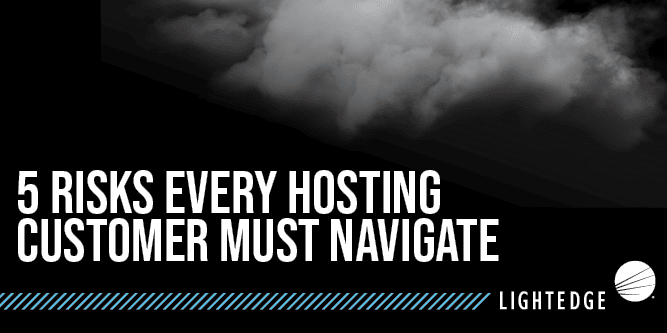Why It’s Time to Get Proactive with Your Database Management
December 11, 2018

Lightedge
Author

In a recent post, we proposed a few “database resolutions” for the new year. At the top of that list was “Stop Reacting, Get Proactive.” The value of ending the cycle of “deal with it as it happens” with your databases cannot be overstated.
Busy IT teams are tasked with doing more with less resources. These internal resources tend to be generalists and this makes proactive RDBMS management difficult because setting up proactive management and monitoring is an advanced skill that requires experience with many configurations baselines. But, with the right resources, it is well worth the effort. Here’s why:
Get ahead of and avoid challenges.
Many teams that we speak with are stuck dealing with database management problems as they occur. They are stuck in the incident management cycle. Regular database monitoring and assessments are important.
Making certain procedures are in place for data backup and data recovery is important. Making sure the correct tools are in place to perform the tasks to meet your RTO and RPO requirements is critical. Of course, proactive management of your Oracle, SQL Server, or NoSQL databases can go well beyond avoiding catastrophe, and that’s when you truly start optimizing database support.
Uncover strategic opportunities.
Being ahead of database issues that may pop up allows your team to look forward and identify not just potential pitfalls, but opportunities as well. Scheduled database audits allow the system to be reviewed and recommendations to be made.
Following up on those recommendations becomes a standard task. We recommend ranking them by risk and complexity to identify the top priorities. Whether that’s a process improvement or technology upgrade, being more strategic has availability and performance benefits.
Databases (such as Oracle, SQL Server, or NoSQL) are the most critical and time-consuming component of an enterprise application migration to the cloud, where proactive, strategic thinking can make a huge impact. Proactive management practices and tools will reduce the friction in your cloud migration.
Optimize your team for excellence.
Of course, the key piece of getting ahead with your database management is making sure you have the right players in the game. Some companies are lucky enough to have in-house IT with the skillset and bandwidth to truly optimize their organization’s databases. However, for many small and mid-sized businesses that’s simply outside of the realm of possible.
Unfortunately that frequently means that whoever is the “best option” ends up in the role of “accidental DBA.” Your databases are too important to let this happen to you. That’s why for many organizations partnering with a managed service provider is the best option. For (usually) less than the cost of adding a full-time employee, you get a whole team of experienced professionals focused exclusively on your database management and optimization.
At ManageForce, we combine our customer and vendor expertise to create the most pragmatic approach possible to solving your specific database challenges. We collaborate with you to manage your most complex application issues while producing optimum business results. Get started getting ahead of your database management today with a complimentary 15-minute consultation.
About ManageForce:
Founded in 2005, ManageForce is a Cloud, ERP and Data Solutions Provider that specializes in digital transformation and business optimization. We help organizations modernize and optimize their enterprise applications by providing structured solutions and full-service dedicated support to help them solve their business problems and thrive.
To learn more, visit www.manageforce.com


